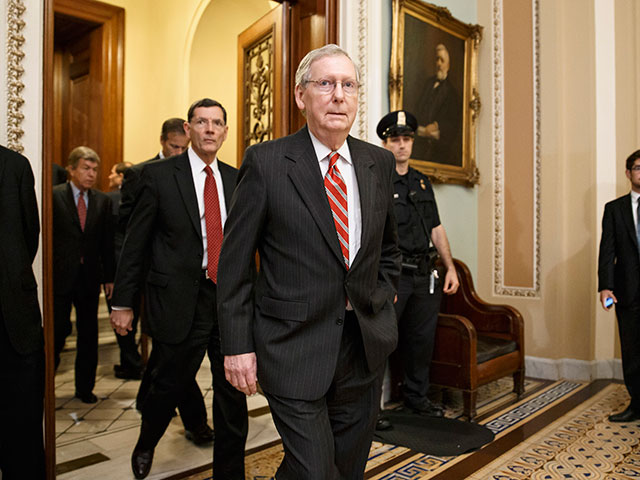
Kentucky Sen. Mitch McConnell doesn’t take the reins of the Senate until January, but he is making an early move to consolidate his power. McConnell is pushing a rule change in the year-end spending deal currently under negotiation that would allow coordination between candidates and independent party campaign committees. The change would eliminate a current fiction in campaign finance laws, but also give McConnell a much stronger grasp on outside campaign spending.
Our current campaign finance regulations limit the amount of “coordination” between candidate committees and national party committees, including the RNC and DNC, and outside Super PACs. There are complex formulas to restrict an individual candidate’s ability to coordinate campaign activities with the Republican or Democrat parties. This absurdity, for example, leads to the Democrat nominee for President being unable to discuss its campaign strategy and tactics with the Democrat party. Only in the psychedelic patch-work quilt of US campaign finance law does that make sense.
It is, itself, a parable for what happens when politicians pushing unconstitutional limits on political speech run into judicial roadblocks.
The coordination restriction is generally a fiction. The Senate Majority PAC, a Super PAC assisting Democrat Senate candidates, was run by close allies of Sen. Majority Leader Harry Reid. Its activities generally complemented the campaigns of individual candidates, even if there was no overt “coordination.” In many ways, McConnell’s rule change would simply make this coordination more public.
In one important way, though, the rule change would increase the control McConnell has on individual Senate campaigns. Currently, a supporter can only donate a limited amount to a specific candidate and has to hope that donations to party committees or outside groups will assist that candidate. Without the coordination restriction, a supporter could be certain that its donation to an independent campaign would help an individual candidate.
In effect, the rule change allows McConnell, and other legislative leaders, to offer “one-stop-shopping” for donors looking to participate in Congressional elections. With individual campaigns coordinating with groups such as the National Republican Senatorial Committee and certain favored outside groups, party leaders would be better able to direct large political donations where it would most assist them.
Allowing a campaign to coordinate with outside groups doesn’t mean that it will or that it would equally. A campaign may decide to strategize with one particular outside group, but not another. A potential donor would likely consider that when deciding where to donate. Truly “outside” groups may have difficulty raising significant dollars as a result.
McConnell’s rule change would give greater control over campaign spending to all legislative leaders, so it has a strong chance of passing. Even if it isn’t included in a year-end spending bill, McConnell is likely to win approval for the change after he takes control of the Senate.
McConnell has always been a fierce and principled opponent to campaign finance restrictions. He views these restrictions as unconstitutional limits on political speech. The proposed rule change is certainly consistent with that view. That it would also consolidate more political power in McConnell’s hands is simply a bonus for him.

COMMENTS
Please let us know if you're having issues with commenting.